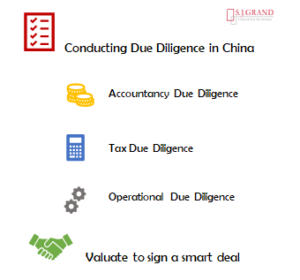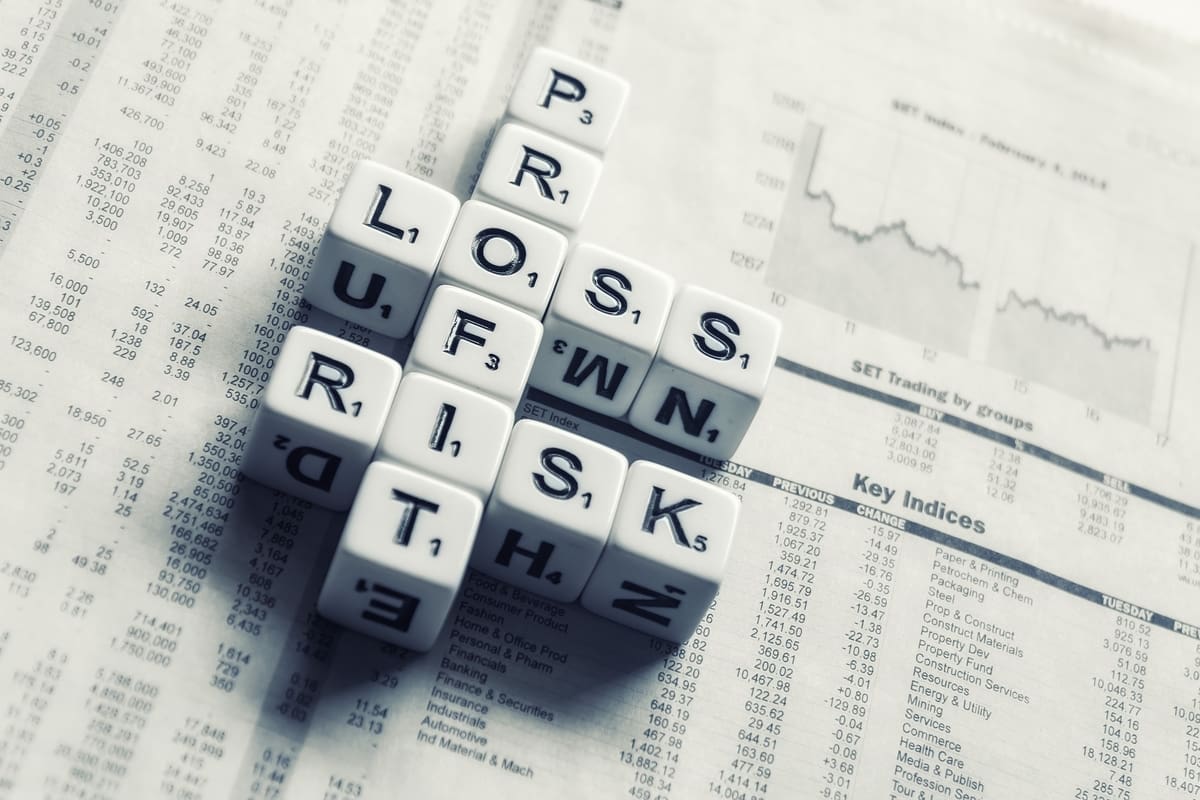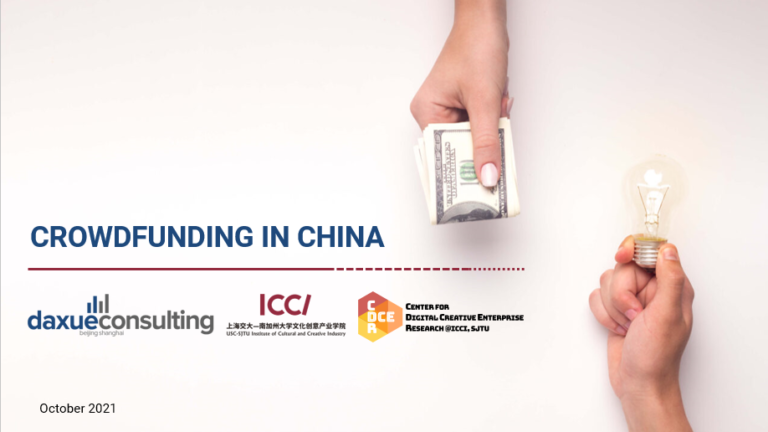How can conducting structured due diligence in China optimize a deal?
Entrepreneurs and their shareholders can reduce feelings of unease after signing a deal by conducting due diligence in China. Rather than rely on hindsight, however, one should actually gather most of the elements he or she will need to valuate an agreement, including a new business partner, beforehand. Structured investigation, namely due diligence, is a key operation to carry out before you close any business deal. Business laws in China are complex, Chinese financial regulations are opaque, and accounting standards are old-fashioned. Due diligence in China can lower the odds of running into problems with both a Chinese counterpart and the law, and can also maximize the return on investment.
Systemized due diligence with China-specific strategies is crucial to choosing the most appropriate business move in the P.R.C. Daxue Consulting partnered with S.J. Grand Financial and Tax Advisory, with more than fifteen years of success in the Chinese market, to provide you with an in-depth financial due diligence checklist in the following article. If a few years ago drafting such a document was time-consuming and clunky, nowadays the process is quite simple; but it must be tailored and adapted to any project.
By following the below checklist, with the appropriate tailor-made modifications, an overseas company can start its China project smart.
Why should businesses conduct due diligence in China?
Foreign companies doing business in China normally have to cooperate with a Chinese counterpart. These partnerships can often present challenges for the foreign entity.
In dealing with China, you will soon realize that the four main obstacles are as follows:
- Language barrier: the foreign investor will most likely not understand documents or business oriented conversations in Chinese, and the Chinese partner will most likely not fully comprehend English;
- Lack of access to information: only a few Chinese companies are willing to publish information online (and in English); not having access to sensitive information may cause the foreign investor to doubt the deal’s legitimacy;
- Lack of a network: business relations in China are personal, linked to the concept of guanxi (which literally means connection, or relationship); the foreign investor may not be fully integrated into the local industry community, and may thus be unaware of potential threats;
- Intricate bureaucratic system: the Western investor may frustrate at dealing with multiple government departments, fast-changing regulations, confusing Chinese corporate structure and time-consuming paperwork.
[ctt template=”2″ link=”9d_UX” via=”yes” ]The four main obstacles when dealing in #China: Language barrier, access to information, lack of a network and intricate bureaucratic system.[/ctt]
Therefore, valuating a business deal is a complicated process. Even if a foreign company were to operate in the Chinese market for a long time, owning both a good network and Chinese-speaking management, it may still experience difficulty when assessing a deal; this will result in a wrong or approximate valuation in mergers and acquisitions, causing a great loss in terms of economic and human resources to the foreign party. Investor confidence aside, only by asking the right questions and getting the right information can one limit the risk level of his or her deal.
In any case, making an investment before closing a deal, to get to know the prospective Chinese partner, or the new target market, is crucial for preserving the company’s capital.
When should businesses carry out due diligence in China?
Carrying out due diligence in China is strongly advised when:
- Investing with a Joint Venture;
- Investing through a merger or acquisition of a Chinese company;
- Investing in start-ups;
- Cooperating with a Chinese partner either for producing your products, parts, or for distributing products or parts;
- Operating through a Wholly Foreign-Owned Enterprise (WFOE) or a Foreign-Invested Commercial Enterprise (FICE) to verify internal operations are straight;
- Hiring a new manager or senior level staff.
Whether you decide to undergo a light or heavy due diligence process, depending on one’s specific condition and purposes, does not matter as long as you protect your business.
China is a risky environment. “Giving your money to a Chinese potential partner without looking into it, it is the same as giving money to a compulsive gambler hoping he will buy bonds”, warns Stephane Grand, Managing Partner of S.J. Grand Financial and Tax Advisory. Therefore, due diligence is key to having extra elements and details with which to roll-out your investment in China.
Financial due diligence can increase profitability: a practical example
In 2016, a Canadian specialty automotive company hired S. J. Grand’s team to establish a strategy to penetrate the Chinese market. “Due to the restricted nature of the industry, we created a complex structure bringing together operational efficiency and safety, securing the Canadian’s company intellectual property”, reminds Stephane. As a matter of fact, S. J. Grand devised the strategy for entering into a Joint Venture with a local automotive company to take advantage of the local firm’s network, while creating an intellectual property rich wholly foreign owned subsidiary.
The automotive partner was selected after the Canadian side of the JV conducted a detailed investigation of the local firm’s background, relations and references, employees, accounts and supply chain. Had it skipped investigative diligence, the Canadian company wouldn’t have been sure to secure an important, yet risky, partnership.
“It was a successful case: the Western company understood the power of due diligence in China and invested to make it happen. We felt we had room to dig more and more, eventually affirming the counterparty was trustable,” recalls S. J. Grand’s Managing Director.
Financial Due Diligence Checklist

Asking the right questions of your Chinese partner can address uncertainties before a deal is closed.
Since due diligence is a broad term, a checklist may be hard to draft. In addition, this activity must be flexible as it reflects a project’s background as well as the type of information the investor wants to collect.
However, depending on the legal entity we considered, we noticed that starting from a standardized list of questions may help a business owner identify issues before they come up in formal negotiations. We drafted this list using our experience and knowledge, which we share to provide you with a business like tool. Understanding how to conduct due diligence is a critical factor in the success of a deal.
We will use the example of a WFOE valuating if to cooperate with a Chinese partner in the following checklist for financial due diligence in China.
The list will set a starting point for valuating an investment in China. Please do not hesitate to contact us to analyze more aspects or to activate the service.
Accountancy Due Diligence
Here’s a list of questions the third party should ask its potential partner or vendor to conduct due diligence in China.
- Are fixed assets reflecting the reality of the company’s operations? Sometimes, assets can be overestimated or have inaccurate depreciation;
- Are all receivables backed up by contracts and invoicing? Is it possible to verify past years ones? This is helpful to understand if the company total billing is reliable;
- Are other payables and liabilities (such as social insurance payments, salaries, pension payments for previous employees, etc.) reliable? Companies and employees often negotiate higher salaries in exchange for underpaying social security’s obligations;
- Are accounting and reporting made on accrual basis? The accrual basis is one of the accounting principles in China. Some companies report on the basis of the receipt issuance date or on the payment receiving date. Nevertheless, sometimes the receiptor payment date does not correspond with the date when the service was provided or the goods were sold;
- Are there some factors that make you think income or cost is unrevealed?
- Are payments authorized or approved by the management with supporting documents? This would actually deserve another note, as internal controls are the basis of both a clean operation and limited review engagement;
- Are invoices authentic? We will talk about this point on a separated article, as it deserves special attention.
Tax Due Diligence
- Are Chinese accounting standards readable by the Western investor?
- Does the company industry benefit from preferential tax rates? If yes, for how long?
- Does the Chinese company comply with all foreign exchange regulations?
- Is the company fulfilling its withholding tax responsibilities?
- Does the company follow all customs regulations?
- Are the monthly, quarterly, and annual tax filings in compliance with the relevant tax regulation?
Operational Due Diligence
Once the due diligence has been performed on supporting documents, it is advisable to perform on-site visits. These are the key to gather hidden and thorny information through an informal audit in China.
Are low level staff and security guards available to attend interviews? Sometimes they can be the best source to pull sensible information out. In fact, the management personnel are often trained beforehand to answer the investigator’s questions in the most advantageous way for the company.

Proceeding deliberately through the due diligence checklistbefore penning a deal can make all the difference for a business entering the Chinese market.
Be always on guard and do your investigations, you’ll be rewarded for investing in China.
For further guidance, please get in touch with one of our consultants to hear more on due diligence in China for foreign enterprises and entrepreneurs. This article was written by our partner S.J. Grand, see below for more information.

S.J. Grand Company Profile
S.J. Grand Financial and Tax Advisory is a tax &management consulting boutique founded in 2003 in China. S.J. Grand has been advising over 1000 international clients on their development and profitability strategies in the PRC, including BNP Paribas and Bank of the West. Believing in transparency and internal control as tools to succeed in China, the firm delivers practical solutions from accounting and taxation to restructuring and optimization, with a strong reputation in dealing with fraud prevention and risk mitigation.
S.J. Grand created OBK Labs, in which it developed its proprietary APP: a powerful workflow management system that exploits the power of artificial intelligence and data analytics in multilingual environments to boost efficiency, slash costs and root out fraud.
Founded by Stéphane J. Grand, alumnus of HEC Paris (MBA), La Sorbonne (Ph.D. in Chinese contract law) and the Fletcher School of Law and Diplomacy (MALD), the firm now counts four offices in China and one liaison-office in Paris.





